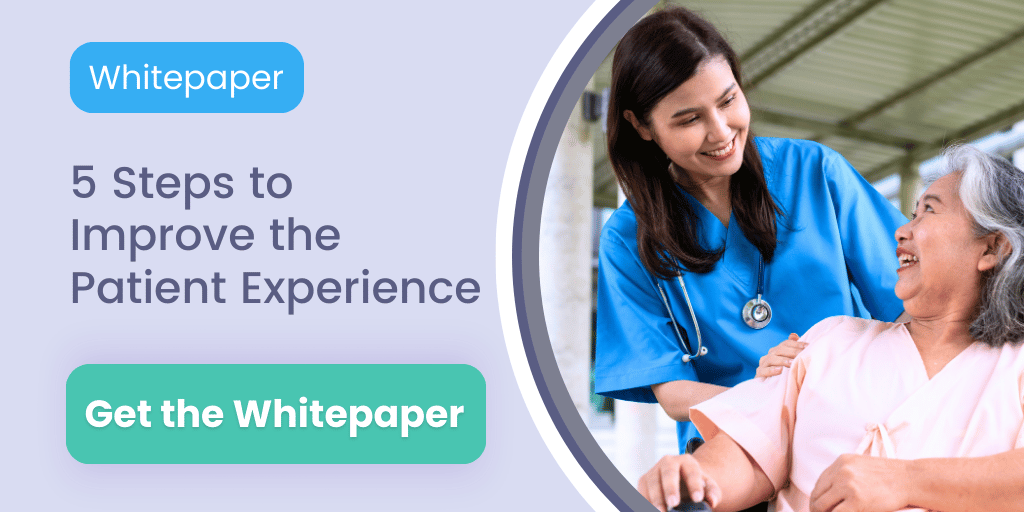3 min read
7 Ways Personalized Healthcare Impacts Patient Safety
Performance Health Partners
March 25, 2024

The concept of personalized healthcare has significantly evolved in recent years, marking a departure from the traditional one-size-fits-all approach to a more tailored method of patient care. The movement toward personalized healthcare isn't just a trend; it’s a paradigm shift that’s reshaping the landscape of medical treatment and patient safety.
What is Personalized Healthcare?
Personalized healthcare, often interchanged with terms like precision medicine or individualized medicine, is a medical model that proposes the customization of healthcare. This approach uses detailed information about an individual’s genetic makeup, lifestyle, and environmental factors to tailor diagnostic, treatment, and prevention strategies specifically to that individual.
Unlike traditional healthcare, which often employs a standardized approach, personalized healthcare aims to recognize and embrace the unique characteristics of each patient.
7 Ways Personalized Healthcare Impacts Patient Safey
Below are seven ways in which personalized healthcare is positively impacting patient outcomes and safety:
1. Enhanced Diagnostic Accuracy
Personalized healthcare leverages genetic and molecular profiling to better understand a patient’s unique health makeup. This leads to more accurate diagnoses, as treatments are tailored to the individual rather than based on a general diagnosis. Doctors can prescribe more effective treatment plans by pinpointing the exact nature of an illness or predisposition to a disease.
2. More Effective Treatments
Personal healthcare plans are developed based on an individual’s genetic makeup, lifestyle, and environmental factors. This approach ensures that patients receive medications and therapies that are most likely to be effective for them, reducing the trial-and-error process often associated with traditional treatment methods.
Personalized healthcare has been shown to improve patient outcomes and cut costs. For example, some payers that have implemented personalization have seen customer experience improve by 10%, administrative costs drop by 5% to 10%, and quality standards increase by 20% to 25% within a six-month period. Similarly, providers have seen significant improvements in consumer satisfaction, the length of hospital stays, and 30-day readmissions.
3. Reduced Adverse Drug Reactions
By understanding a patient’s genetic profile, healthcare providers can predict how they will respond to certain medications. This reduces the risk of adverse drug reactions, which is a significant concern in conventional healthcare settings. Personalized healthcare allows for the selection of drugs that are compatible with a patient’s genetic makeup, enhancing patient safety.
4. Improved Patient Engagement and Compliance
Personalized healthcare involves patients in their treatment plans, leading to improved engagement and compliance. When patients understand how a particular treatment is suited to their unique needs, they are more likely to follow through with their healthcare provider’s recommendations, thereby improving outcomes.
Personal health records and electronic medical records play a huge role in personalized medicine and improving patient engagement. Personal health records account for patient information such as immunization records, lab results, and screening due dates electronically kept by a patient. When patients can track their health over time and have information and tools to manage their health, they are more engaged in their health journey. Timely health reminders increase patient treatment adherence and medication education, allowing them to engage in their care actively.
5. Early Detection and Prevention of Diseases
Personalized healthcare enables the early detection of diseases through genetic screenings and predictive analytics. This early intervention is crucial in managing and even preventing the progression of certain diseases, significantly improving patient safety and outcomes.
An example of personalized healthcare includes diving deeper into a patient’s genetic makeup, or family history. If an individual has relatives who suffer from chronic conditions like diabetes, heart disease, hypertension, or cancer, it may increase their own risk of developing these diseases.
With personalized healthcare, providers will ask more of these background questions and can start screenings to ensure early diagnosis or treatment options that may have been overlooked with traditional medicine.

6. Efficient Use of Healthcare Resources and Technology
By tailoring healthcare to individual needs, resources are utilized more efficiently. Personalized healthcare reduces the need for unnecessary tests and treatments, thereby saving time and reducing healthcare costs.
Technology also plays a role in improving patient outcomes and safety. Artificial intelligence can revolutionize personalized medicine, optimize medication dosages, enhance population health management, and improve patient education. It can also assist in diagnosis, treatment selection, and patient monitoring, enabling more accurate and efficient healthcare delivery.
7. Psychosocial Benefits
Finally, personalized healthcare acknowledges the patient as an individual, which has significant psychosocial benefits. It fosters a sense of being cared for as a unique individual, which can positively affect mental health and overall well-being, further enhancing the effectiveness of medical treatments.
The implementation of personalized healthcare is not without challenges. These include the need for a cultural shift to shape care around patient priorities, the complexity of integrating personalized care planning into routine practice, and the need for an underlying organizational transformation. Solutions to these challenges include greater collaboration between patient and clinician, shared healthcare decision-making, and coordination of care.
Ready to Get Started?
Learn how Performance Health Partners’ incident reporting software can help your organization improve patient safety. Click here to get started.


